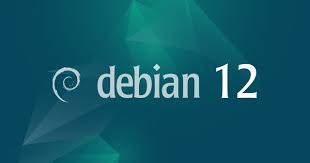How to enable Debian 12 Backports repository? Read our latest blog to learn more about the process. At Bobcares, we assist our customers with several Debian queries on a daily basis as part of our Server Management Services.
Overview
- How to Enable Debian 12 Backports Repository?
- Enabling & Using Debian 12 Backports Repository
- Main Considerations on Using Debian 12 Backports Repository
- Conclusion
How to Enable Debian 12 Backports Repository?
What is Debian 12?
Debian 12, codenamed “Bookworm,” is a notable release of the Debian operating system, which is known for its stability and durability. As a stable release, Debian 12 provides a dependable environment for both servers and desktops, with comprehensive testing and quality assurance. This release includes updated software packages and libraries, as well as various new features and improvements, all while maintaining Debian’s reputation for reliability.
Debian 12 adds new packages and updates existing ones, hence improving hardware support and program functionality. It also features security upgrades, demonstrating Debian’s commitment to protecting against vulnerabilities through regular updates and fixes. Users benefit from increased hardware support, such as newer drivers and kernel upgrades, as well as updated versions of popular desktop environments including GNOME, KDE Plasma, Xfce, and LXQt. These upgrades give customers with new features as well as usability and performance enhancements.
Debian 12 supports a variety of architectures, including x86_64 (64-bit) and ARM, and its low memory needs make it compatible with a wide range of hardware. Installation options include network installations, bootable disks, and pre-configured virtual machine images. The APT package management system makes it easier to install, update, and manage software packages.
Debian 12, like previous Debian releases, benefits from long-term support, providing a dependable foundation for essential systems. Debian 12 is developed and maintained by a large volunteer community, and it also receives extensive support via official channels, forums, and mailing groups. This release builds on Debian’s heritage of providing a reliable and secure operating system, making it an ideal choice for home and enterprise use.
What is Debian 12 Backports Repository?
Backports are packages from the upcoming Debian version (known as “unstable” or “sid”) that have been recompiled for the current stable release. Backports are used to give more recent versions of some software to stable users while maintaining system stability. It is intended to be compatible with the stable release, but they are not officially endorsed by the Debian security team and are supplied as best effort.

Backports are generally used by users who want to use newer versions of specific software without upgrading their complete system to the latest Debian release.
Benefits of Debian 12 Backports Repository
1. Backports give customers access to new software features and improvements that are not present in the stable release.
2. Newer versions of software may contain crucial security patches that have not been backported to the stable release. Backports can deliver these updates.
3. Developers frequently require newer software versions to work on projects or use the most recent development tools.
Enabling & Using Debian 12 Backports Repository
1. Enable Backports Repository:
i. Initially, we must create a new file for the backports repository:
bash sudo vim /etc/apt/sources.list.d/debian-12-backports.list
ii. Add this line to the file:
bash deb http://deb.debian.org/debian bookworm-backports main
iv. Save and close the file, then update the package list:
bash sudo apt update && sudo apt upgrade
2. Install Backported Packages: To install a package from backports, use:
bash sudo apt install -t bookworm-backports
3. Add Contrib and Firmware Packages:
i. Update the backports file to include contrib and non-free firmware:
bash deb http://deb.debian.org/debian bookworm-backports main contrib non-free-firmware
ii. Update again:
bash sudo apt update && sudo apt upgrade
4. Search for Packages in Backports:
i. Use apt search to find packages:
bash apt search
ii. Or, for a specific package from backports:
bash apt-cache search -t bookworm-backports
5. List All Backports Packages: To list all packages in backports:
bash apt search . | grep -E 'bpo12|stable-backports'
6. Install a Package from Backports: To install a specific package, use:
bash sudo apt install -t bookworm-backports python3-omemo-dr
7. List Installed Backports Packages: To see all installed backports packages:
bash dpkg --list | grep bpo12
8. Remove Packages from Backports:
i. To remove a package:
bash sudo apt remove python3-omemo-dr
ii. To also remove configuration files:
bash sudo apt --purge remove python3-omemo-dr
iii. Check disk space after removing packages:
bash df -H
Main Considerations on Using Debian 12 Backports Repository
We’ve to key in mind the following things while using the Backports:
1. Backports give newer versions of software that may not have been thoroughly vetted with Debian’s stable release. This can introduce newer features while affecting overall system stability.
2. Only employ backports for specific packages that require newer features or fixes not found in the stable version. It should not be used for system-critical packages unless absolutely necessary.
3. Installing packages from backports can introduce new dependencies that may not be as stable as those in the main repository. Always check for dependency updates before installation.
4. Backported packages may not receive security updates as soon as those from the stable repository. To ensure system security, monitor any backported software for updates.
5. Ensure compatibility with current software and setups. Newer versions of backported software may have changes that necessitate configuration updates.
6. To minimize unexpected problems, backported packages should be tested in a non-production environment before being deployed in critical systems.
[Need to know more? Get in touch with us if you have any further inquiries.]
Conclusion
Using the Debian 12 Backports repository allows you to access newer software versions while keeping the stability of the main Debian release. To sum up, our Tech Team went over the enabling and using of Debian 12 Backports repository details.




0 Comments